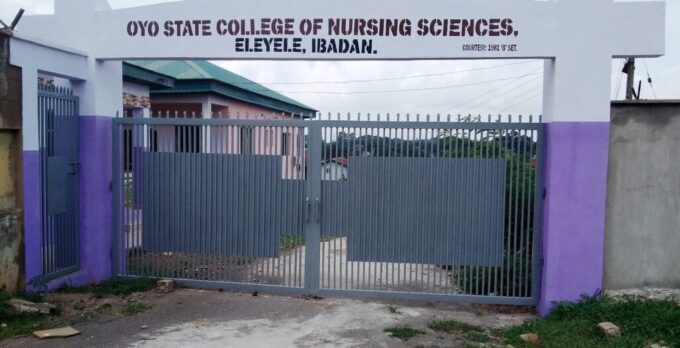…Urge synergy to rebuild Nigerians’ trust
By Henry Uche
Deep-seated mistrust remains a major barrier to insurance adoption in Nigeria, industry stakeholders have observed, linking low uptake to years of public disillusionment.
They are now calling for renewed synergy among key players to rebuild trust, enhance transparency and reposition insurance as a reliable safeguard for Nigerians across all walks of life.
Many acknowledge that insurance fraud has long been a serious challenge, undermining trust and stability in the industry worldwide. Yet, passionate and committed stakeholders remain determined to erase the negative labels of deception, manipulation and dishonesty often associated with insurance.
These experts are calling for greater collaboration among industry leaders and practitioners to change this damaging narrative.
Insurance educators highlight the difficulty in changing the perception of many Nigerians, as countless individuals, or those close to them, have been let down by insurance operators over the years.
“First impressions matter deeply and last a long time. Given that, can you really blame those who vow never to engage with insurance in Nigeria?” one insurance expert questioned.
Industry veterans stress that people tend to forget the good done for them but rarely forget mistreatment. In Nigeria’s complex economic landscape since the Fourth Republic, buying insurance is far from a priority for most citizens. According to an insurance scholar, over 70 percent of Nigerians do not consider insurance relevant to their immediate concerns, a mindset often reinforced by strong religious beliefs and cultural attachments. It is no surprise, then, that Nigeria’s insurance penetration remains among the lowest globally, hovering around one per cent.
But should this continue? The question lingers, urging the industry and society to reflect on how to rebuild trust and make insurance a valued part of Nigerian life.
To begin with, the Nigerian insurance industry encountered severe challenges during the late 1990s and early 2000s, largely due to economic decline. This period also saw a surge in fraudulent insurance claims, which further destabilized the sector. Despite ongoing efforts to revive the industry, insurance fraud remains a persistent problem, demanding innovative solutions and collaborative strategies to safeguard policyholders and uphold the integrity of the insurance system.
In 2007, the National Insurance Commission (NAICOM) launched a recapitalization initiative aimed at rejuvenating Nigeria’s insurance sector. This process involved a rigorous assessment of insurance companies’ financial status, exposing widespread fraud, mismanagement, and regulatory non-compliance. Consequently, many undercapitalized or insolvent firms were either merged or liquidated. While the exercise brought about important reforms, it fell short of eliminating fraud entirely.
The rapid advancement of technology and the internet has reshaped numerous industries, including insurance. Over the last decade, the sector has experienced significant digital transformation, improving efficiency, customer service, and data-driven decision-making. However, this digital revolution has also empowered fraudsters to evolve, exploiting new vulnerabilities with increasingly sophisticated tactics to deceive insurers and policyholders alike.
Current challenges in insurance
Traditionally, insurance fraud involved falsified claims and staged incidents. Today, with the rise of technology and artificial intelligence, insurers face more complex threats from organized fraud rings employing phishing, identity theft, and even deepfake technologies. Common forms of insurance fraud in Nigeria include, but are not limited to: unlicensed insurance agents: These individuals impersonate legitimate agents, selling fake or nonexistent policies through social media, online advertisements, or word-of-mouth, leaving victims vulnerable to significant financial loss.
Insurance identity fraud: Fraudsters commonly steal personal information, often through data breaches, to create fake insurance accounts or impersonate policyholders. Using these stolen identities, they submit fraudulent claims, causing financial damage and undermining trust in the system.
Premium theft by Agents: Some agents exploit customers by collecting premiums directly, bypassing official digital channels, and failing to remit payments to insurers. Victims often discover the fraud only when making claims, to find their policies inactive despite paying premiums.
Claims process exploitation: Motor and health insurance policies, being widely adopted, generate numerous claims. Some policyholders inflate or falsify claims to gain undeserved payouts, inflating costs and eroding the system’s integrity.
The digitisation of insurance has undoubtedly transformed the industry, making products more accessible and user-friendly. Customers now easily research, purchase, and manage policies online or via mobile apps. While this convenience has expanded insurance reach and improved operations, it has also introduced fresh vulnerabilities. The anonymity and speed of online transactions provide fertile ground for fraudsters to exploit weaknesses.
To effectively combat these evolving threats, experts advocate for the adoption of advanced technologies such as data analytics to detect suspicious patterns and anomalies early. By leveraging these tools, insurers can prevent fraud more efficiently, reducing losses and protecting customers. However, striking the right balance between robust security measures and maintaining a positive customer experience remains critical. “Overly stringent controls risk alienating genuine customers,” experts warn. Those insurers who master this balance will be best positioned to build trust, retain loyalty, and thrive in a fiercely competitive market.
Insurers around the world, including those in Nigeria, are increasingly adopting innovative technologies to tackle insurance fraud and strengthen their defenses against constantly evolving threats. Artificial Intelligence (AI) plays a pivotal role by analyzing extensive historical claims data to uncover patterns and anomalies that may indicate fraudulent behavior. By embedding AI into underwriting and claims processes, insurers can better assess risk, detect suspicious claims early, and significantly reduce financial losses. Similarly, behavioral analytics offers a strategic edge by monitoring policyholder behavior to identify unusual activities that could suggest fraud, allowing insurers to flag high-risk claims for further scrutiny before payments are made. Technologies such as blockchain ensure the secure and tamper-proof storage of sensitive customer data, while biometric authentication methods like fingerprint scanning and facial recognition provide an added layer of security against identity theft and impersonation.
Coronation Insurance exemplifies this commitment to combating fraud through a comprehensive strategy that emphasizes both technology and education. The company actively educates its employees and customers by distributing regular content through emails, webinars, and social media platforms, highlighting the risks associated with insurance fraud and cybersecurity threats such as phishing, identity theft, and hacking. On the technological front, Coronation Insurance employs advanced AI-powered Optical Character Recognition (OCR) technology to quickly detect potential fraud, especially in motor insurance claims, enabling the analysis of large data volumes for suspicious activity. Furthermore, the company uses AI tracking tools to locate stolen vehicles and mobile devices, enhancing recovery efforts and reducing losses. By leveraging collective expertise in internet communication technologies and fostering collaboration, Coronation Insurance stays one step ahead of fraudsters, continuously adapting its defenses to protect customer interests.
The fight against insurance fraud is not one that insurers can win alone. It requires concerted collaboration among insurers, regulators, the media, industry analysts, observers, and policymakers. Together, these stakeholders can develop and implement robust strategies to prevent and detect fraud, creating a safer environment for policyholders.
Such synergy fosters a culture of transparency, accountability, and innovation, which are essential to driving down fraud rates and rebuilding public trust in the insurance industry. By ensuring openness in data handling and protection, and educating customers about these measures, insurers can foster greater trust and cooperation.
Ultimately, these efforts will reduce fraud, enhance security for policyholders, and encourage wider insurance adoption across Nigeria and beyond..


















Leave a comment